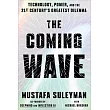This title provides a comprehensive, unified tutorial covering the most recent advances in the emerging technology of free-space optics (FSO), a field in which interest and attention continue to grow along with the number of new challenges. This book is intended as an all-inclusive source to serve the needs of those who require information about the fundamentals of FSO, as well as up-to-date advanced knowledge of the state-of-the-art in the technologies available today. This text is intended for graduate students, and will also be useful for research scientists and engineers with an interest in the field.
FSO communication is a practical solution for creating a three dimensional global broadband communications grid, offering bandwidths far beyond what is possible in the Radio Frequency (RF) range. However, the attributes of atmospheric turbulence and scattering impose perennial limitations on availability and reliability of FSO links. From a systems point-of-view, this groundbreaking book provides a thorough understanding of channel behavior, which can be used to design and evaluate optimum transmission techniques that operate under realistic atmospheric conditions.
Topics addressed include:
- FSO Physical and Statistical Models: Single/Multiple Inputs/Outputs
- Understanding FSO: Theory and Systems Analysis
- Modulation and Coding for Free-Space Optical Channels
- Atmospheric Mitigation and Compensation for FSO Links
- Non-line-of-sight (NLOS) Ultraviolet and Indoor FSO Communications
- FSO Platforms: UAV and Mobile
- Retromodulators for Free Space Data links
- Hybrid Optical RF Communications
- Free-space and Atmospheric Quantum Communications
- Other related topics: Chaos-based and Terahertz (THz) FSO Communications



 天天爆殺
天天爆殺  今日66折
今日66折 
























 博客來
博客來 博客來
博客來 博客來
博客來 博客來
博客來 博客來
博客來